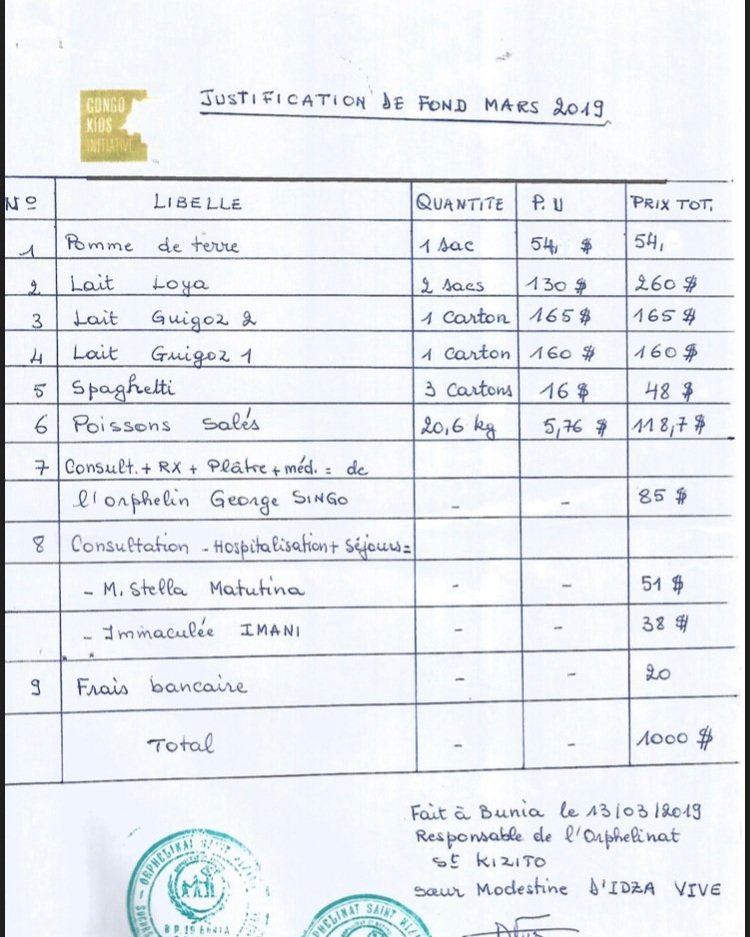WHY THE MILK BANK MATTERS
This month St. Kizito’s received two babies in need of extreme care. Our first, David Mugisa, is two months old. Last week his mother was working in the fields in Mudzipela, near the displaced camp where the family lives, when she suffered heat stroke and collapsed. David was strapped to her back while she went into cardiac arrest and died. The family had fled Largu, 45 miles north of Bunia, after attacks and massacres by rival militia – part of a two-decade-old conflict that’s killed millions and left even more homeless. Living in the camp, David’s family realized they couldn’t afford formula for the newborn now that his mother couldn’t nurse. The fact that they can’t buy milk – just ten cents a carton – means that David is now separated from his loved ones. St. Kizito’s has promised to care for David until his family can return to their village and begin to farm – a process that could take three to five years, the nuns believe.
After David we received Raymond Lokuni, also two months old. Raymond’s mother died while having an emergency cesarean in the village of Solenyama. As in David’s case, Raymond’s father couldn’t afford to feed the child now that the mother is gone. Grieving his wife, he also gave up his son in order for him to survive. The nuns assured him they will care for the boy until the father can afford to bring him home.
With the addition of two more babies, we now have 73 children in our care – 20 of them under 12 months old. The price of formula is also rising. Transport has become interrupted due to fighting in the hills and the recent Ebola scare stymied the markets. Right now, we spend around $1,000 a month just on basic nourishment for our kids – most of that in Guigoz powdered formula. That’s why we need your continued support.
Above, a receipt from last month's expenses. Approximately 60% of our monthly expenditures at St. Kizito are for infant formula. We are always working to find birth, foster, and adoptive homes for our children, but in the meantime addressing the urgent nutritional needs of infants is our daily charge.
